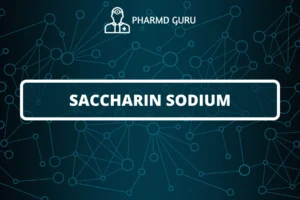Aspirin, also known as acetylsalicylic acid, is a commonly used medication with analgesic (pain-relieving), antipyretic (fever-reducing), and anti-inflammatory properties. Here’s some information on the preparation, test for purity, assay, and medicinal uses of aspirin:
SCROLL DOWN TO THE BOTTOM OF THIS PAGE FOR ACTUAL NOTES.
Preparation of Aspirin:
Aspirin can be prepared through a process called esterification, involving the reaction between salicylic acid and acetic anhydride. The reaction produces aspirin and acetic acid as a byproduct. The synthesis is typically carried out in the presence of a catalyst, such as sulfuric acid.
Test for Purity of Aspirin:
Several tests can be conducted to assess the purity of aspirin, including the following:
- Melting point determination: The melting point of pure aspirin is around 135-136°C. A melting point analysis can be performed to check if the observed melting point matches the expected range.
- Thin-layer chromatography (TLC): TLC analysis can be used to determine the impurity profile and compare it with the expected pattern of pure aspirin.
Assay of Aspirin:
An assay is performed to determine the concentration or purity of aspirin in a given sample. The assay method for aspirin usually involves a titration with a standardized base or acid solution to measure the acid content or ester content, depending on the specific analysis.
Medicinal Uses of Aspirin:
Aspirin has various medicinal uses, including:
- Analgesic and antipyretic: Aspirin is commonly used to relieve mild to moderate pain, such as headaches, toothaches, muscle aches, and menstrual cramps. It can also reduce fever by acting on the hypothalamus, which regulates body temperature.
- Anti-inflammatory: Aspirin possesses anti-inflammatory properties, making it effective in reducing inflammation associated with conditions like arthritis and other inflammatory disorders.
- Antiplatelet agent: Aspirin acts as an antiplatelet agent by inhibiting the aggregation of blood platelets. It is commonly prescribed in low doses to reduce the risk of blood clot formation and prevent cardiovascular events, such as heart attacks and strokes.
- Other uses: Aspirin may be recommended for certain medical conditions, such as Kawasaki disease, some autoimmune disorders, and as a preventive measure for some types of cancer.
ACTUAL NOTES:
PATH: PHARMD/PHARMD NOTES/ PHARMD FIRST YEAR NOTES/ ORGANIC CHEMISTRY/ PHARMACEUTICAL ORGANIC CHEMISTRY/ ASPIRIN.




